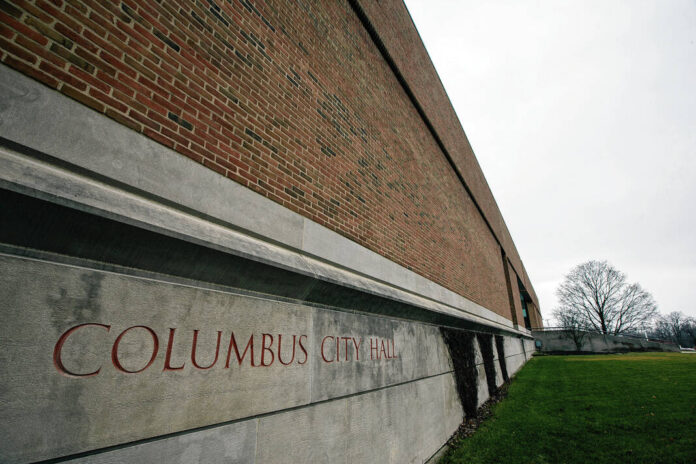COLUMBUS, Ind. — City officials have different views on whether to adopt a new government structure that, if approved, would lead to the addition of two more city council members and also result in more changes.
Columbus City Council discussed the pros, cons and requirements of adopting a “second class city” Tuesday. Mayor Jim Lienhoop said the city council will likely vote on the matter at its next two meetings, on June 21 and July 5. However, he added that if the council votes to adopt second class status, most of the changes won’t go into effect until 2024.
Columbus is currently a “third class city.”
At present, Indiana Code states that municipalities are designated by status and population as follows:
- Cities of 600,000 or more — First class cities
- Cities of 35,000 to 599,999 — Second class cities
- Cities of less than 35,000 — Third class cities
- Other municipalities of any population — Towns
As of July 1, 2022, the minimum population for second class cities will be updated to 34,000 due to newly-approved legislation.
In Columbus’ case, the difference is irrelevant. According to census counts from STATS Indiana, the city had already attained a population of more than 39,000 by the year 2000, and its 2020 count was a little more than 50,000.
However, such increases do not automatically trigger a change in status. Indiana Code states that a third class city that accumulates a population of 34,000 remains at third class, unless the legislative body chooses to adopt second class city status. Likewise, a second class city that falls below 34,000 remains with that designation unless its legislative body chooses to adopt third class status. Counts are determined at each federal decennial census.
“If it is the wish of the council, it documents that decision by passing an ordinance stating that the city adopts Class 2 status pursuant to Indiana Code. The change would take effect at the end of the terms of currently elected officeholders. In our case, should council decide to make this change, it would be effective Jan. 1, 2024,” according to the proposal.
For second class cities, the legislative body is made up of nine total individuals — six members representing six districts and three at-large members. The council is now made up of five district representatives and two at-large.
All cities are required to review council district boundaries this year in consideration of the 2020 census. If council members chose to adopt second class status, creation of a sixth district would be included in the redistricting process.
City councils for second class cities choose a president and vice president from their members to preside over meetings. In third class cities, such as Columbus, the mayor presides at all city council meetings but may vote only if a tie needs to be broken. The council also has a president pro tempore who presides if the mayor is absent.
“In Class 2 cities, the mayor does not vote on issues before the council, even in the case of a tie,” the city’s memo stated. “In case of a tie, the issue is treated as if it failed as it did not receive sufficient votes to pass.”
Mayors in both second and third class cities have the option to veto council decisions, which in turn can be overridden by a 2/3 majority vote of the council.
The change in city status would affect other positions as well. State code specifies that while third class cities elect a clerk-treasurer, second class cities elect a clerk. Both positions fill the role of city clerk; however, the clerk-treasurer also serves as the city’s fiscal officer. In a second class city, the fiscal officer is a city controller appointed by the mayor.
There are also more minor changes that are required for second class cities — such as changing the official titles of the city’s legal counsel — and some optional changes, said city officials. Optional changes include splitting the Board of Works and Public Safety into two boards, creating a deputy mayor position, creating a department of health, creating a department of sanitation and creating a city court. However, city officials do not expect to institute these changes.
For the complete story and council reaction, see Thursday’s Republic.





